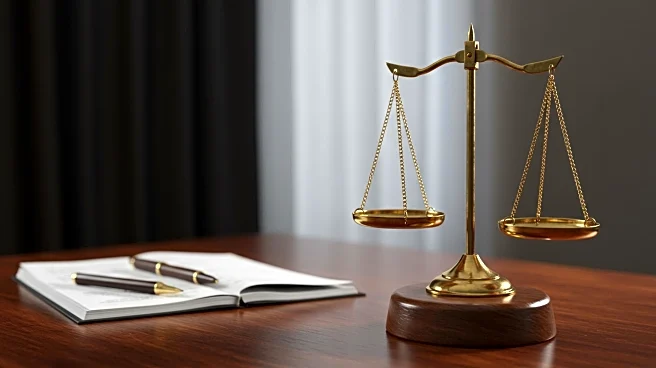What is the story about?
What's Happening?
The NFL and Rashee Rice are in discussions regarding the length of his suspension after he pleaded guilty to two felonies related to a high-speed racing incident. The league proposed a suspension lasting more than half of the season, which Rice's representatives argue is unprecedented. The incident involved Rice causing a multi-car pileup on a Dallas highway, resulting in injuries and being caught on video. Rice initially left the scene but later admitted to driving. Comparisons are being made to other cases, such as Jets cornerback Brandon Echols, who received a one-game suspension for a similar incident. The NFL's decision-making process is under scrutiny, as the case is set to be heard by Judge Sue L. Robinson, with a potential hearing scheduled for September 30.
Why It's Important?
The outcome of Rashee Rice's suspension case could set a precedent for how the NFL handles similar incidents in the future. The league's approach to disciplining players for off-field conduct is significant, as it impacts player behavior and public perception of the NFL's commitment to safety and accountability. The case also highlights the challenges in balancing punishment with deterrence, as the league aims to prevent dangerous driving behaviors among players. The decision could influence future policies and the league's reputation, affecting stakeholders such as teams, sponsors, and fans.
What's Next?
If the NFL and Rice do not reach an agreement, the case will proceed to a hearing on September 30. Until then, Rice remains eligible to play. The league's handling of the case may prompt discussions on revising disciplinary procedures to ensure timely resolutions. Stakeholders, including teams and fans, will be watching closely to see how the league addresses the complexities of off-field conduct and its implications for player discipline.
Beyond the Headlines
The case raises ethical questions about the NFL's role in addressing player conduct and the broader societal impact of high-profile athletes' actions. It underscores the importance of accountability and the potential influence of sports figures on public behavior. The league's decision could contribute to ongoing debates about the responsibilities of professional sports organizations in promoting safe and responsible conduct among players.

















